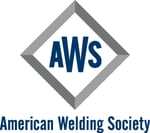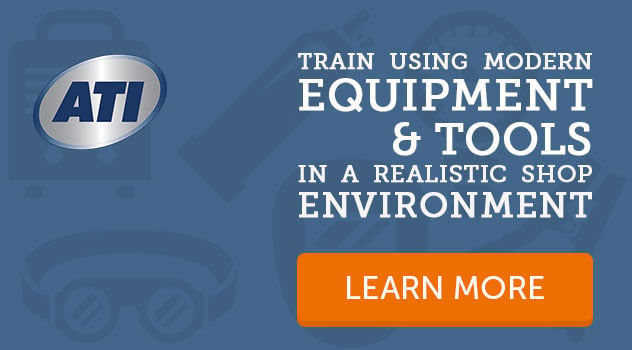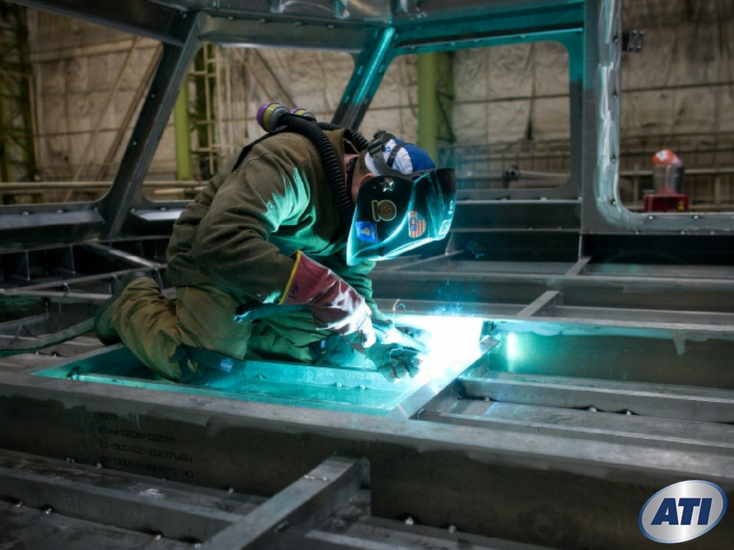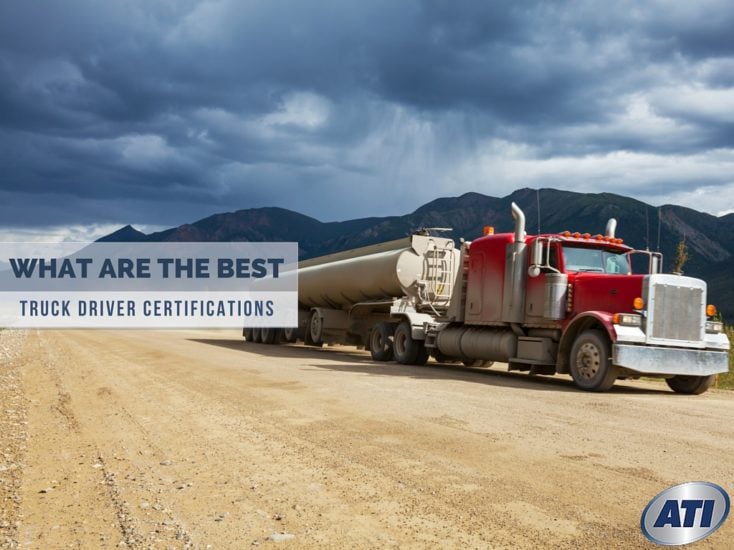How to Become a Certified Maritime Welder: Top Certifications
.jpg)
A maritime welding career could be a perfect fit for you if you love the water and the heavy equipment that is in it. Fixing things, attention to detail and ability to work with powerful tools is just part of what you need for a successful career as a maritime welder. Getting certified can increase your job opportunities and pay range, and it could even help you demonstrate the skills that make you qualified for a maritime welding job. From shipyards to offshore oil rigs, the certifications you get as a maritime welder add to your credibility as a skilled craftsman in any situation.
Maritime Welder Programs
Programs that offer a diploma or degree in welding will normally cover the basics of maritime welding, so they are the first step in the certification process. Without an education that covers the basics, certification can be challenging to downright impossible. Certification exams are difficult, testing a welder’s skills and abilities based on strict industry standards. Adherence to the strict safety and standard procedures are tested during certification exams, so good working knowledge of these procedures is necessary to pass. Welding ability alone will not get you a certification.
Types of Welding Certifications
 The major organization welders go through to become certified is the American Welding Society (AWS). They offer information and certification for welders in several areas including a basic certified welder (CW), which is the first certification welders will need to get to demonstrate basic welding skills. Even maritime welders have to start from the beginning and build up qualifications over time. Tests and certifications can be accomplished through any AWS accredited testing facility around the world.
The major organization welders go through to become certified is the American Welding Society (AWS). They offer information and certification for welders in several areas including a basic certified welder (CW), which is the first certification welders will need to get to demonstrate basic welding skills. Even maritime welders have to start from the beginning and build up qualifications over time. Tests and certifications can be accomplished through any AWS accredited testing facility around the world.
What To Expect
For a basic certified welder certification, part of the exam has the welder make a weld. The weld is then inspected by a qualified welding inspector. The weld quality, and the welder’s ability to adhere to the Welding Procedure Specification (QC7) is evaluated. Welders are allowed multiple opportunities to pass a certification exam and receive certification.
How Long Do Welding Certifications Last?
After receiving your certification you will have to maintain it. By the standards of the American Welding Society, you will need to turn in a certification maintenance form every six months to maintain your certification. If you are working at a welding job, that means you will have your employer verify you are using the same skills you tested and were certified for. You will also need to become re-certified every nine years. During that nine years you will have to take personal development hours, which is like continuing education for welders. A minimum of eighty personal development hours must be obtained in that time to re-certify.
Pro Tip: Seminars available through the American Welding Society can be used as part of your personal development hours for re-certification.
Extra Certifications for a Maritime Welder
Endorsements are part of a welding inspector certification (CWI or SCWI) and can be added to a certification to demonstrate specific skills or proficiencies. When combined with a certified welding inspector certification, endorsements increase your chances of sticking out from the crowd. They also allow you a better chance to get into a job that is a better fit for you and what you enjoy doing the most. Some endorsements provided by the American Welding Society that may be useful for maritime welders include:
- Structural Steel
- Structural Aluminum
- Structural Bolting Inspection
- ASME Pressure Piping
 Welders may also take the National Craft Assessment and Certification Program for Maritime Core, offered through the National Center for Construction, Education and Research (NCCER). This exam and certification allows welders to be put on the NCCER’s national registry, so your skills and certifications can be browsed by potential employers. Every certification you receive through NCCER will be updated and added to your resume on the registry. It becomes like a portfolio. The Maritime Core certification is a great beginning certification because it covers the basics you will need for the maritime industry, as well as safety.
Welders may also take the National Craft Assessment and Certification Program for Maritime Core, offered through the National Center for Construction, Education and Research (NCCER). This exam and certification allows welders to be put on the NCCER’s national registry, so your skills and certifications can be browsed by potential employers. Every certification you receive through NCCER will be updated and added to your resume on the registry. It becomes like a portfolio. The Maritime Core certification is a great beginning certification because it covers the basics you will need for the maritime industry, as well as safety.
Congratulations to Jonathan Carden from ATI Advanced Technology Institute for being the Imagine America… http://t.co/ub6h9tpfHS
— Imagine America (@IAFoundation) January 16, 2015
Take the Next Step toward Becoming a Maritime Welder
If you think that maritime welding sounds like a career for you and can’t wait to prove your skills by becoming certified, contact Advanced Technology Institute for more information on our Maritime Welding program. Through the accelerated program you could earn a Maritime Welding AOS Degree in as little as 19 months or a Maritime Welding Diploma in as little as 14 months. Contact us at 800-468-1093 or request information online today!
DISCLAIMER – Advanced Technology Institute (ATI) makes no claim, warranty or guarantee as to actual employability or earning potential to current, past or future students or graduates of any educational program offered. The Advanced Technology Institute website is published for informational purposes only. Every effort is made to ensure the accuracy of information contained on the AUTO.edu domain; however, no warranty of accuracy is made. No contractual rights, either expressed or implied, are created by its content.
For more information about Advanced Technology Institute or any of our programs click here: http://www.auto.edu/ or http://ow.ly/VoydP.
Industry Knowledge
Welcome to the Advanced Technology Institute's Blog, your resource for industry insights and discussions on technologies shaping the future of automotive, heavy vehicle, hvac, welding, and other related career paths.
Explore how ATI's curriculum and hands-on learning opportunities can propel your career in the tech-driven world.



